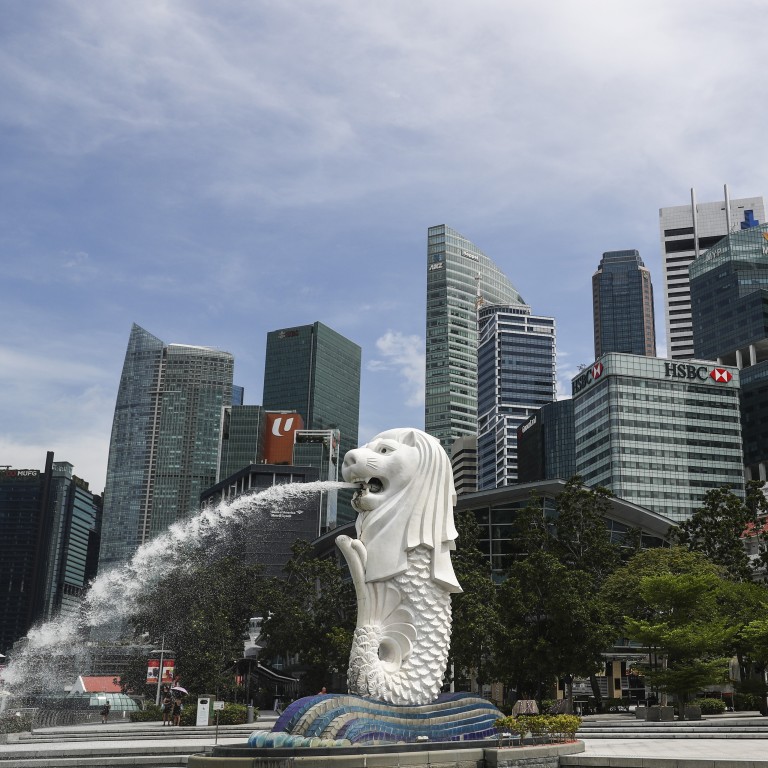
As Covid-19 rages on, is Singapore risking too much to host the World Economic Forum?
- More than a thousand foreigners are expected to arrive in Singapore for a tennis event, Davos 2021 and the Shangri-La Dialogue in the coming months
- Health experts say regular testing for inbound travellers and segregating them from the community will be key
And next month, tennis players from around the world are expected to head to Singapore, after the Association of Tennis Professionals (ATP) on Wednesday announced it would hold an event in the city state. More than 70 tennis professionals are currently locked down in Melbourne after positive coronavirus tests were returned from charter flights that brought them to the Australian Open.
World Economic Forum: a calculated risk for Covid-safe Singapore
As Covid-19 continues to rage across most of the world, all eyes are on how Singapore will proceed with the events without sparking a fresh wave of imported infections, while health care experts are urging the government to adopt more aggressive measures to keep the virus at bay.
Infectious diseases expert Dr Leong Hoe Nam said Singapore needed to “proceed with caution”, pointing out that if the number of coronavirus cases in some countries remained high, officials from those nations might decide to withdraw from the events. Britain, for example, had its deadliest day on Wednesday after a surge in Covid-19 deaths, with officials describing hospitals as a “war zone”.
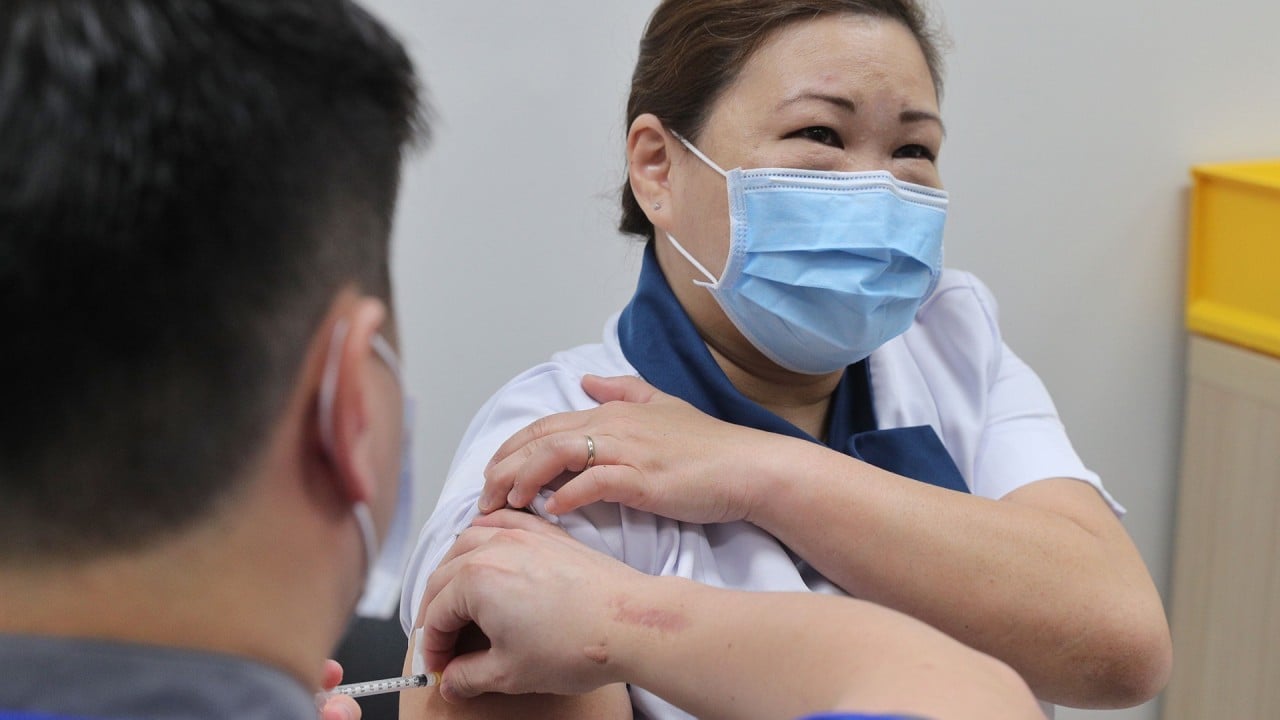
02:03
Singapore begins national Covid-19 vaccination programme
“The events will be prestigious if Singapore holds them successfully while every other country has a raging pandemic at home,” Leong said. “But anyone who tests positive may contaminate the whole event, and it may end up with the complete opposite effect.”
Organising a meeting with key stakeholders from around the world … is about giving people hope that there is light at the end of the tunnel
Tokyo-based journalist William Pesek this week argued in a column for the Nikkei Asian Review that it was “reckless” for the WEF to hold an in-person event in the heat of the pandemic as it could become a super-spreader event. It should be called off, he said, otherwise “Davos’ Singapore sling could end up starting a new way to make Covid-19 transmission great again”.
In a Thursday response in the same publication, WEF international media council head Peter Vanham said the meeting would “happen safely and successfully, or it won’t happen at all”.
“Organising a meeting with key stakeholders from around the world is about much more than restarting air travel, hotel and conferences – even though these heavily hit sectors could use all support they can get,” he wrote. “It is about reversing trends towards social isolation, protectionism, xenophobia, and polarisation. And it is about giving people hope that there is light at the end of the tunnel.
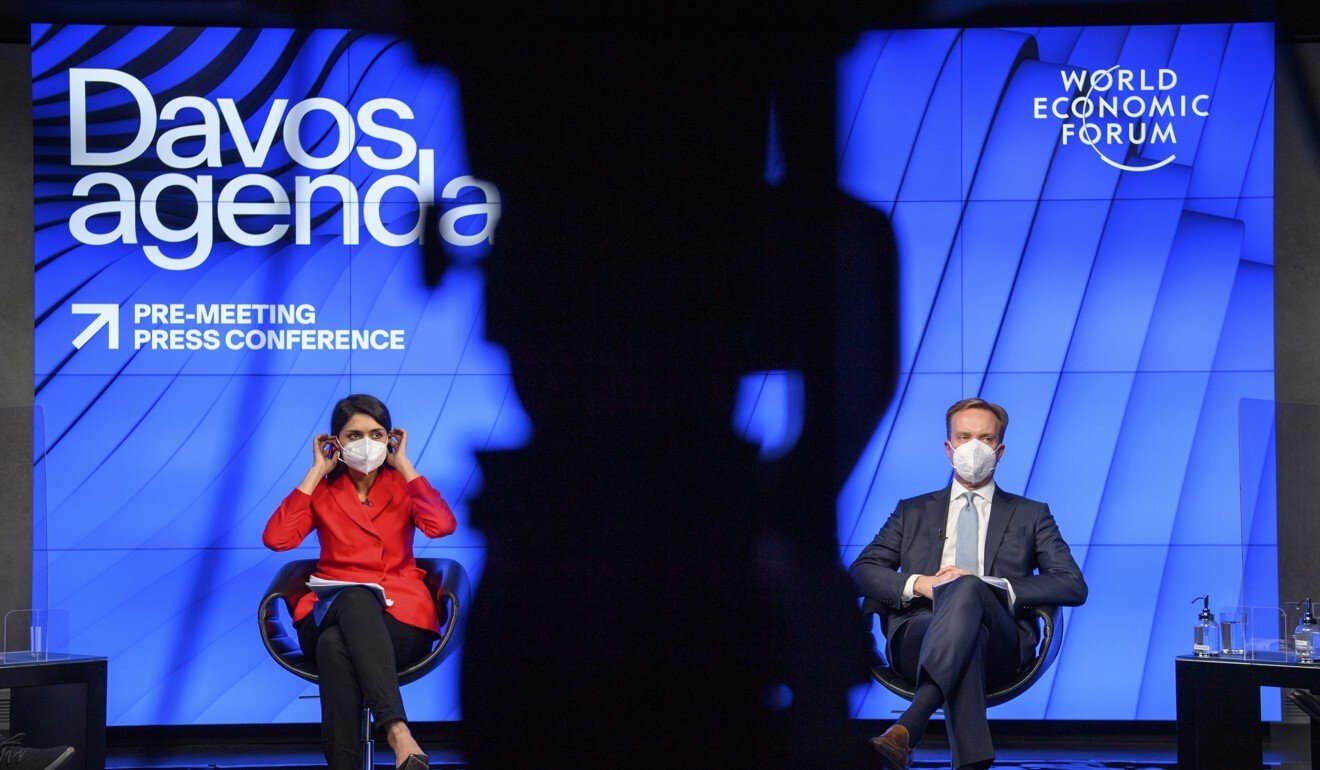
‘MORE CAUTIOUS THAN EVER’
Health care experts including Dr Jeremy Lim, an associate professor at the National University of Singapore’s Saw Swee Hock School of Public Health, felt that the island nation’s authorities would have weighed their options and were taking a calculated risk.
Lim said trade and connectivity were Singapore’s lifelines, and it “just had to be more prepared to take risks than others [that are] less dependent”.
Responding to queries from This Week in Asia, a spokesperson from the country’s trade ministry declined to provide more details about preparations for the WEF event, saying only that “contingency plans” have been set up to take into account prevailing Covid-19 situations locally and around the world.
Dr Ling Li Min, an infectious diseases physician at Singapore’s Rophi Clinic, said the authorities would be “more cautious than ever” and that intricate planning was necessary, but she felt that the country was well prepared for this influx of travellers.
Coronavirus: how Singapore went from hero to zero, and back to hero again
The WEF typically hosts some 3,000 participants, but media reports last week suggested the Singapore edition would be scaled down to between 1,000 and 1,800 attendees. The Shangri-La Dialogue, meanwhile, draws a smaller crowd of about 600. The prelude to the dialogue, known as the Sherpa meeting, was convened earlier this week, drawing 200 participants who attended physically and virtually. Singapore’s defence ministry did not provide a breakdown on how many were present in person at the event.
Dr Hsu Li Yang, also from the Saw Swee Hock School of Public Health, said these numbers were significantly lower than the 100,000-odd passengers who had transited through Singapore’s Changi Airport in the final months of last year. “In that context, while the WEF is high profile, the actual risk from the attendees is not significantly higher,” he said. “Many locals will be assured if the steps to ensure that community spread does not occur are explained in a transparent manner.”
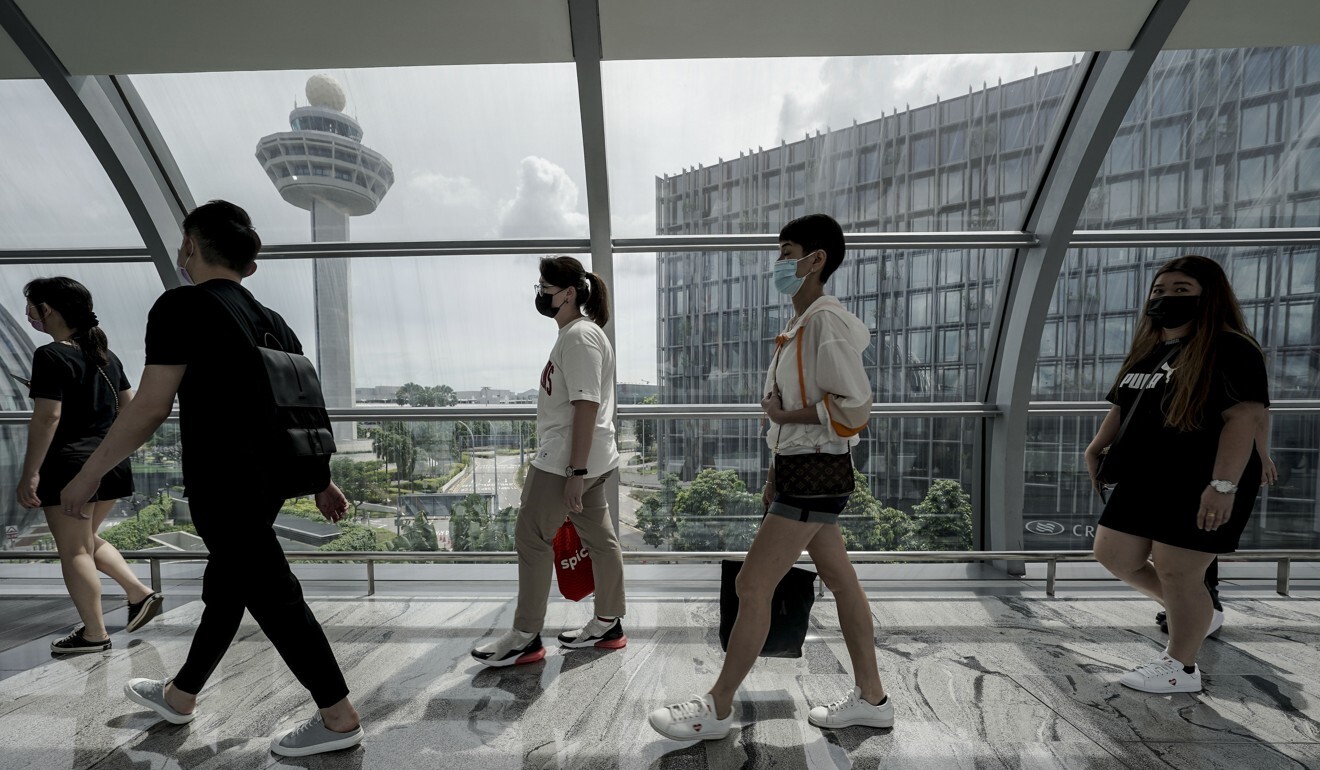
Ling of Rophi Clinic said current measures practised in Singapore – including the requirement for inbound travellers to declare their health status and download a contact tracing app, as well as the way conference attendees were split into groups of 50 who cannot mingle and interact with others – had laid the foundation and expectations for larger-scale events. On top of that, she expected event venues to be far from crowds, for security and safety reasons, with dedicated routes to and from the airport and hotels.
Lim, the associate professor, said it would not be unreasonable for the government to discourage residents to go to the event venues or even close off those areas. “It’s not about geography, but about access and opportunities for Singaporeans to come into contact with delegates,” he said, adding that this would mean everyone involved in the event – from civil servants to hospitality crew and media – would likely be asked to stay on site.
Singapore’s Marina Bay Sands eyed as venue for World Economic Forum summit: sources
EVENT-SPECIFIC MEASURES
As infectious diseases expert Leong put it, the event would be a “closed environment”, with no or limited visitation from uninvolved parties and residents, and likened such an approach to the tight security at the 2018 summit in Singapore between then US President Donald Trump and North Korean leader Kim Jong-un.
Reuters, citing sources, last week reported that WEF organisers were considering the Marina Bay Sands complex – which has played host to several recent conferences – for the event. A check on the Marina Bay Sands website and booking sites including Agoda, Trip.com and Booking.com showed that the hotel was fully booked from May 25 to 28, when the WEF is slated to run.
Leong also suggested that the Singapore government could request that foreign participants get vaccinated either in their home countries or on-site in the city state.
Teo Yik Ying, dean of the Saw Swee Hock School of Public Health, added that there could be event-specific measures to minimise the risk of transmission between attendees, including the deployment of non-invasive rapid tests at a much higher frequency to screen them for active infection.
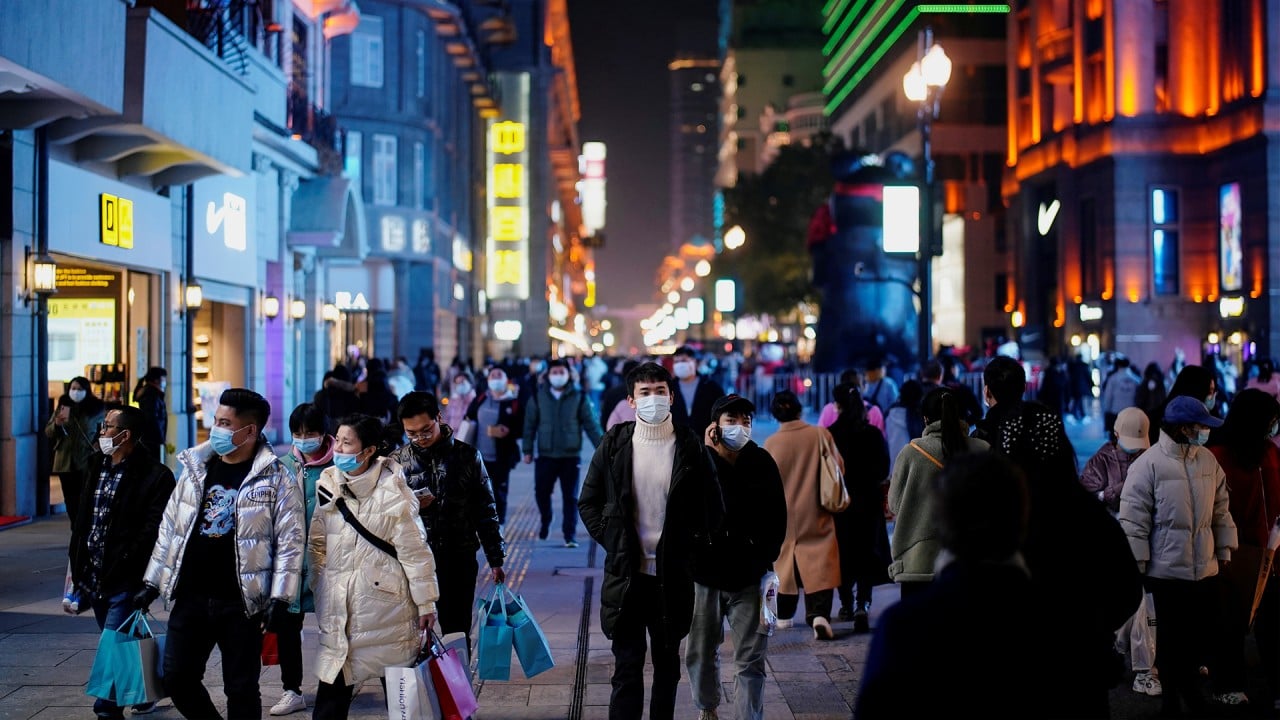
07:07
The places that successfully contained Covid-19 and why others are not following their lead
Hsu, from the same institution, added that the forum’s participants would likely have to stick to a fixed itinerary, and physical interactions could take place using ceiling-to-floor glass panels, similar to a plan authorities had previously devised for business travellers. For the Sherpa meeting this week, attendees had to undergo a rapid antigen test, and were separated by plastic panels.
But when asked if Singapore should put in place more forms of testing – such as the way China has mandated inbound travellers to present not only a negative result from the more accurate polymerase chain reaction (PCR) test but also an antibody test – Leong said this was not necessary.
Leong suggested that the Singaporean authorities ramped up PCR or antigen testing for the attendees, and explained that an inherent issue with the antibody test was that it presented false positives and “traps” many people who did not have Covid-19.
“It is like using short hair to identify an individual as a man,” he said. “China looks at its own national safety first over the individual traveller.”
Still, experts said Singapore would be watching the global situation closely and would reconsider the forums if the situation deteriorated. While its earlier quarantine-free travel bubble with Hong Kong was called off as the city reported a surge in cases, Saw Swee Hock School of Public Health dean Teo said Singapore’s authorities would likely be monitoring a range of factors, not just infection numbers.
“The threshold is actually not determined by just case counts locally or globally, but by a multitude of factors including the roll-out of the vaccine, the situation with new variants, or even technological advances in diagnostic tests,” he said.

